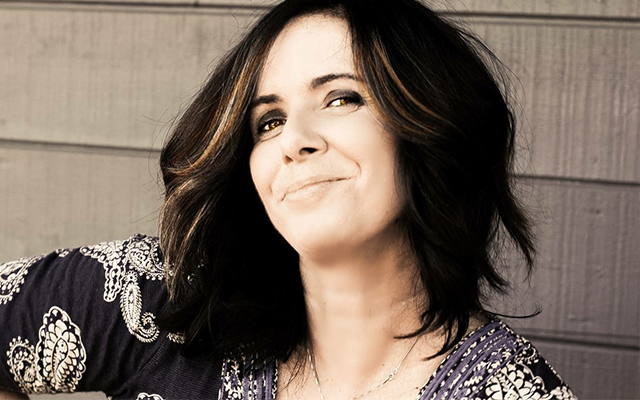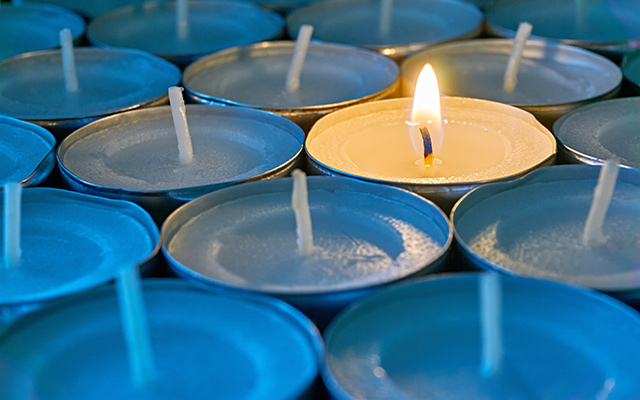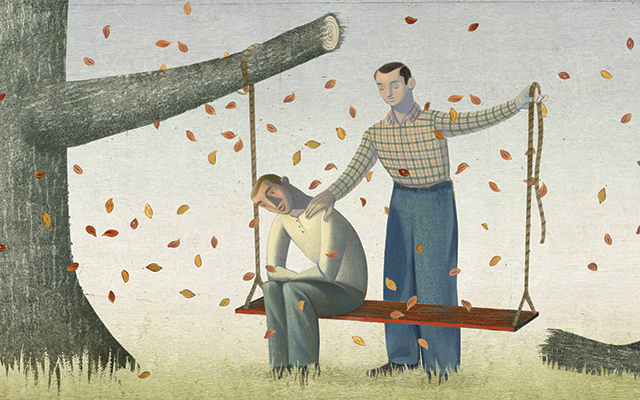Several years ago, Christina Rasmussen found herself in nearly unbearable pain, alone, with two young children after losing her husband to cancer. “Loss is the most unexpected event in our lives,” she says. “Don’t live an expected life after loss. It will be hard at first. Get ready to fight for the most important battle of your life.”
In dealing with the devastation of her loss, Rasmussen quickly discovered that the traditional models of grief recovery she’d been taught were not as effective as she hoped — and needed. Through her own work, she developed a philosophy on navigating through loss that has proven helpful for the millions of people looking to rebuild, reclaim, and relaunch their lives after the passing of a loved one.
Through her guidance, The Rasmussen Reentry Practitioner Program focuses on action. As she says, “it is not just ‘talking’ about loss and staying inside the ‘waiting room’ of grief, but taking courageous action to create a new life and reenter the world.”
We asked Rasmussen to share more about her way of thinking and dealing with loss, an experience that has, as she says, the power to inspire you to “live, love, and create more fiercely than ever.”
Experience Life | We all experience some form of loss in our lives. What is an important first step someone should take to begin moving forward after loss?
Christina Rasmussen | The first step is validation. This occurs when we share about our loss. Not only the loss itself that has taken place (like a divorce or a death), but also all the secondary and invisible losses that happen within you. The grief that is not seen and not shared is grief that can be very difficult to heal. In sharing, we receive a necessary form of validation for all the losses we have experienced, both directly and indirectly.
Loss of security, loss of identity, and the loss of the future: These are just some of the hidden losses that take place. I have found that people go into ‘the waiting room’ (the place between two lives) primarily to wait for time to heal themselves, but they stay because they are hiding their feelings. They stay here because they are afraid. They stay because they feel alone.
Validation allows you to be seen, witnessed, and acknowledged for all the pain that is taking place within you. I encourage people to talk to others who can see you, in person. If you don’t have them around you, find a support group. Don’t hide. Seek out help. It is vital for your healing. And remember, you don’t have to do all the work on your own. You are not supposed to.
EL | What is your perspective on the seven stages of grieving?
CR | The seven stages of grieving are about gaining awareness of what is taking place in the first months of loss. It is good to have that awareness, and it is central to a good, solid foundation to stand on so you can do the work of Reentry.
But for many years the world just had these stages to step on and nothing about starting life over. Yes, it is helpful to know why we feel angry and why we are in denial of the loss, but it doesn’t help us get back on our feet.
Our world has evolved beyond the stages of grief; we are now required to step into a more action-oriented experience, and that is why I created the Life Reentry model — where brain science, insight, and validation can create a bridge into a new identity and a life so extraordinary that we feel like we are living a completely second life.
EL | What advice would you give someone who’s having a hard time reaching out or asking for help during a difficult time? And what are the most meaningful and helpful ways you can support someone who’s going through a difficult time?
CR | People need to hear that they can start right where they’re at — and that they’re not alone in their pain. At first, listen to them, witness their pain, and reflect back their strengths.
Give them not only listening support but also practical support. Help them with an errand like going to the grocery store for them. I will never forget my best friend getting food for my empty fridge and flowers for my empty vase. I felt like life had just walked back in. Self-care is something that can be lost during grief, so make sure your friend makes time for a walk, a massage, or a green juice. Helping out with even the smallest everyday tasks can make a big difference.
EL | Is there a phrase, saying, or prayer you find to be particularly inspiring and uplifting when you’re experiencing challenging times?
CR | You can do the impossible because you have been through the unthinkable. I wrote this in my early days after loss when I thought I would never escape grief. I still have it printed on a big piece of wood and have it hanging in my office. My dreams keep growing more and more because of this saying.
EL | You’ve been quoted as saying, “When it’s your time to go, you won’t wish you’d spent more time grieving. You’ll wish you’d spent more time living.” What are your top tips for living a full, authentic life?
CR | My approach is:
- Start the day with self-care. This needs to take place before the kids need you, before you check email, and before your mind starts to wander off to all the responsibilities. Go for a run, drink water, and spend a few moments meditating. This is how I start my life every day. It lifts me out of a lower vibration and into an immediate state of living my day fully.
- Remove expectations from your goals. If you are working on something that does not make you sing from the rooftops, terminate it. Life is too valuable and too divine to do any work that does not make you feel happy. I did this two years ago and everything changed. When you lift the weights off your mind and body, you enter a more permanent state of happiness. One that can only be achieved by living your life through goals that give you goose bumps when you think about them.
- Laugh with yourself. If you find it difficult to do, turn to something funny to read or watch. It is vital that you laugh every single day and never take yourself too seriously.
- Appreciate today. Knowing that my time here is limited makes me want to live in a state of unexpectedness and surprise. I make decisions based on a feeling that soon all of this will be over. I don’t have the time to do things I don’t like, be with people I don’t enjoy, and live life according to expectations that were set by a world that doesn’t know me.
- Love as many people as possible.
EL | You mention you are working on your first work of fiction: a science fiction story about a woman on a quest to start over and begin a new life. What is the inspiration behind this story and when will it be published?
CR | This is my favorite question of all because it shows you how I live my life after loss the best. Who I am today bares no resemblance to the woman I was nine years ago when my husband died. Without my grief I could have never dreamed as big as I have and dared to do the impossible.
I am writing a trilogy about a woman called Livia Wood. She, too, lost someone she loved and is on a quest to find him. It is based on the quantum theory that consciousness moves to another universe after death. Livia Wood will take the reader on an impossible quest to find her deceased love while at the same time falling in love with someone new.
Learn more about Rasmussen at www.secondfirsts.com and www.thelifestarters.com, and follow her for daily inspiration on Twitter and Instagram at @SecondFirsts.
Learn more about The Life Starters and Rasmussen’s “30 Days of Firsts,” a daily email program designed to help you take action and raise the bar on life after loss.
If you or someone you know is dealing with feelings of grief or depression, be sure to seek professional help immediately.




This Post Has 0 Comments